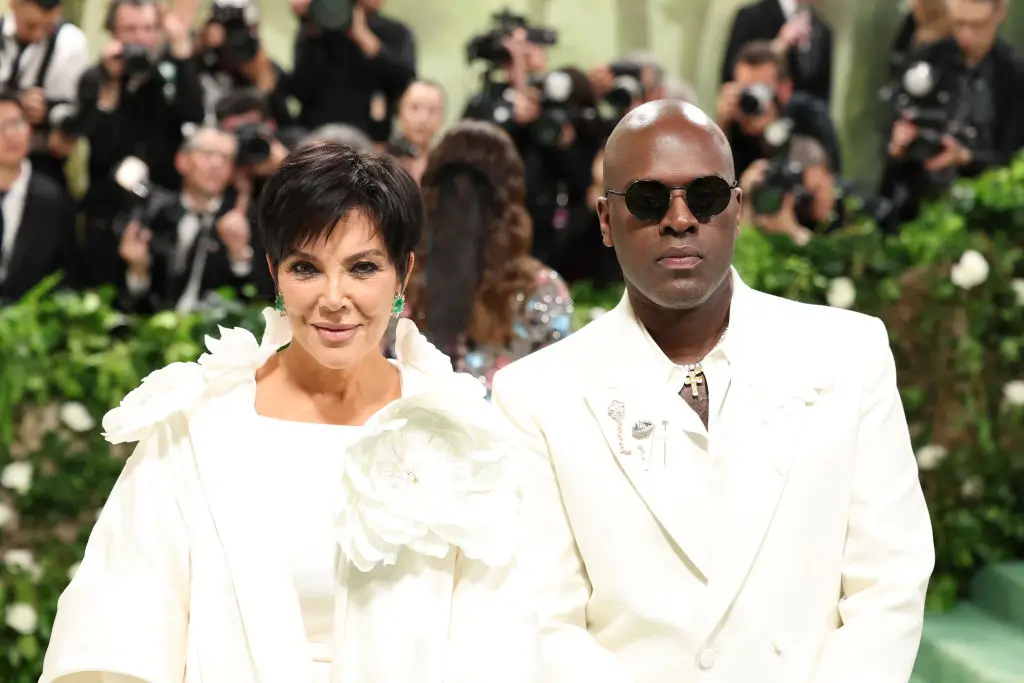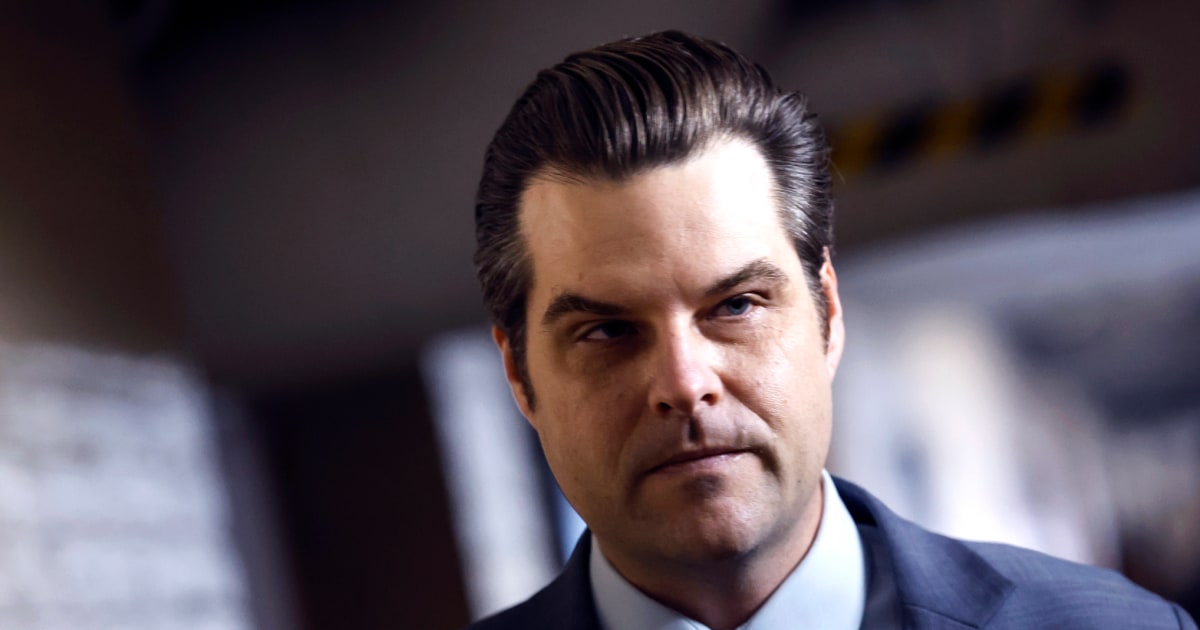“We are all dead men.”
So sayeth the New Jersey construction mogul (and would-be centurion) Ralphie Cifaretto moments before nearly blinding gentle giant Georgie Santorelli with a length of chain behind closed doors at the Bada Bing. One could argue that Ralphie was a dead man walking from the moment he first appeared at Livia Soprano’s funeral, bearing teary and disingenuous tidings of brotherhood toward his grieving (and aggrieved) boss. Shortly thereafter, the show started a running gag of having Joe Pantoliano’s toupee-wearing scumbag quote Gladiator to anyone who would listen. “He’s fucking obsessed with Gladiator,” moans Sil. “It’s a great fucking film,” replies Ralphie.
The obvious disparity between the stoic family-man-of-action General Maximus Decimus Meridius, who leads a revolt of enslaved people against a corrupt and incestuous emperor, and a sniveling abuser like Ralphie, who’d just as soon be emperor, is in keeping with The Sopranos’ mandate toward pop-cultural satire. The fact that Ralphie explicitly thinks that Gladiator is a better movie than Stanley Kubrick’s Spartacus—as obvious an inspiration for Ridley Scott’s epic as Barry Lyndon was for The Duellists and 2001: A Space Odyssey was for Alien—suggests he’d be a pretty lousy film critic.
By having their most despicable character pledge undying allegiance to Gladiator’s alpha-male attitudes, the Sopranos writers were arguably trying to subvert the popularity of a film that leveraged critical and commercial consensus into $500 million at the global box office and a Best Picture Oscar. The bigger the movie, the easier the target, perhaps, which is par for the course with Ridley Scott, whose filmmaking rarely countenances half measures. At his best, he’s a director with the skills and drive to overwhelm even the most skeptical viewers with pure, brain-melting spectacle. At his worst, his movies are white elephants that sag and buckle under their own colossal weight.
The ’90s were famously unkind to Scott—a decade of diminishing returns after the unlikely blockbuster Thelma & Louise. That movie turned Scott into a lightning rod for op-ed controversy—and earned him plaudits as a feminist ally—but any politically correct brownie points he scored were squandered on the follow-up. Overlong, overwrought, and dramatically inert, 1492: Conquest of Paradise visualized the myth of Christopher Columbus with all the urgency and insight of a diorama; the film’s jumbled sense of history and representation began with the casting of Gallic icon Gérard Depardieu as an Italian explorer and went downhill from there. Never one to back down or take constructive criticism, Scott blamed the film’s poor reception and middling profits on American audiences unwilling to listen to dialogue in foreign accents. “They don’t hear shit,” he snarked in a 2021 interview, “unless it’s from Texas or America.”
There were even fewer apologists for Scott’s follow-up, White Squall—a survival drama that failed to heed the era’s various industry cautionary tales about shooting expensive genre movies on the open sea (see also: The Abyss, Cutthroat Island, and Waterworld); today, it endures mostly as the primal scene for a series of QAnon-associated catchphrases. G.I. Jane (1997), starring Demi Moore as a distaff Marine, was legible as an extension of Thelma & Louise’s anti-patriarchal agenda and, more generally, Scott’s Kubrickian cosplay, with the classic source this time out being Full Metal Jacket. Moore’s physical transformation in the role earned headlines, but the character wasn’t a patch on Thelma or Louise (or Ellen Ripley), and with the exception of one all-time, hard-R-rated one-liner (itself borrowed from Roseanne Barr), G.I. Jane felt as rote and constrained as a training exercise.
In the late ’90s, producer Douglas Wick was contacted by a screenwriter who pitched a project about “the Roman arena”—a seemingly dubious proposition. There hadn’t really been a true sword-and-sandal-style hit in nearly 20 years, not since Arnold Schwarzenegger had played Conan the Barbarian; the most successful contemporary variations on the gladiator-movie formula had been movies that swapped out signifiers of antiquity for dystopian futurism (like The Running Man, again with Arnold). But Wick was persistent and convinced DreamWorks to take on the script—and also to try to attach Scott, who was looking to make a high-profile comeback. The director was convinced by an appeal to his aesthete side. “We brought Ridley a painting from the late 1800s of the Roman Colosseum,” Wick told Best In Business 2024 in 2020. “It was beautifully shaded, and because it was sort of in the blush of the British Empire, it was slightly idealized. Ridley looked at the painting and said, ‘I’ll do the movie. Wherever the script is, we’ll get it right. I’m doing this movie.’”
Getting the script right is the crucial point here. Scott’s poetic eye is real, but so is his dependence on sturdy dramaturgy. When he doesn’t have good material, his obsessive perfectionism curdles into indulgence; he can seem less like an auteur than a sort of spendthrift journeyman. Meanwhile, the idea of Sir Ridley as some sort of uncompromising auteur is, at best, double-edged and increasingly dubious given his own views on the matter. “There isn’t a ‘them and us’ as far as I’m concerned,” Scott told Interview in 2001. “I have enormous respect for the studios—they’re paying me to have a jolly good time making my vision of what we’ve agreed on. All creative minds have to deal with the people who are paying the bills.”
On one level, Scott is simply being honest about the tension between art and commerce endemic to mainstream moviemaking. On another, he’s admitting that, for all its visionary qualities, his work ultimately and willingly serves the bottom line. The contradiction of an iconoclast who is also a company man is fascinating, especially in light of the themes of rebellion and nonconformity that punctuate Scott’s films, which often focus on conflicts between individuals and institutions.
Ostensibly, Gladiator is a parable about the dangers of unchecked power—a malign force embodied by Joaquin Phoenix’s Commodus, who impulsively murders his father, Marcus Aurelius (Richard Harris), in order to ensure his ascent to the throne and prevent Rome from becoming a democratic republic as per the older man’s wishes. Because Gladiator is a movie and not a history lesson, the hugely fictionalized nature of this plot point doesn’t matter; what’s more relevant is Harris’s legacy as an icon of Arthurian nobility from his role in Camelot—a crucial boomer reference point for Scott’s intended audience. Harris was a great, hammy actor, and he gives the early passages of Gladiator some gravitas. The opening skirmish between the Roman army and a band of Germanic marauders is filled with gloriously gory moments (including a white horse ferrying a decapitated corpse across the forest) but peaks in a small and humane cutaway: a shot of Marcus Aurelius with his eyes closed, exhaling in silent relief that the hostilities are at an end.
Phoenix was only 25 when he appeared in Gladiator, edging into next-big-thing territory; compared to Harris, he comes off as an anxious and posturing over-actor. Not that that’s a bad thing, given the particulars of the role: The historical Commodus was a brazen and brawny glory hog who insisted on fighting all comers in the Colosseum before ultimately being assassinated by political rivals who’d grown weary of his megalomania. Phoenix isn’t physically intimidating, but his passive-aggressive petulance still leaves an impression; the scene where Commodus smothers his dad weaponizes the idea of clinginess while directly recalling Roy Batty’s act of tear-stained fratricide in Blade Runner—score one for the auteurists there.
If Phoenix is an enjoyably hissable villain, Russell Crowe’s Maximus cuts the same noble figure as Ben-Hur and Spartacus before him: He’s a two-fisted paragon of virtue. Crowe’s Oscar-winning turn effectively synthesizes his breakthrough roles in L.A. Confidential and The Insider, where he had essayed two variations on the archetype of the principled whistleblower—one bruising, one brainy, and both only reluctantly self-righteous. His acting in Gladiator isn’t as showy (or brilliant) as it is in those films, but he holds the screen completely and is credible both as a leader of men and a closet romantic (in love and war both, he leads with his soulful eyes and chipped shoulder). With respect to Paul Mescal, who can be a wonderful actor in the right role, his performance as Maximus’s son in Gladiator II evaporates the moment the film flashes back to the original. All it takes is a two-second clip of Crowe to remind us what an A-list action star looks like.
On the subject of action, Gladiator’s combat sequences still retain their kinetic charge, especially the mid-film throwdown between Maximus and the towering Tigris of Gaul (Sven-Ole Thorsen), an undefeated ringer whose WWE-style gimmick involves fighting alongside a series of live tigers. It’s a truism that the most memorable action scenes are often the ones that skirt the fine line between excitement and absurdity, and Scott stages their confrontation smartly as an exercise in visual slapstick, with Crowe trying to maneuver stoically between a proverbial rock (a giant guy in a scary metal mask) and a hard place (a bunch of tigers). Scott also scores points for innovation by deploying a faster shutter speed in certain shots to give the choreography a hyperreal sense of clarity. It’s a startling effect, used judiciously.
The paradox of trying to make a throwback-style period piece in the early 21st century is real, but Scott mostly stays on the right side of the uncanny valley, deploying some slightly ropey CGI mostly for sweeping panoramas and otherwise keeping things tangible and tactile. The same beatific glow that attracted Scott to that 19th-century canvas finds expression in cinematographer John Mathieson’s wonderfully stylized lighting, which bathes interiors in expressive swaths of red while remaining alert to the gradations of grit and grime on the Colosseum floors.
For all his technical prowess, Scott is not always a supple storyteller. One by-product of his abilities as a world-builder is that he’s apt to gaze a bit too long and lovingly at his own creations—like a semi-benevolent god (or maybe Narcissus in a mirrored lake). The moment when Maximus confronts Commodus and reveals the man behind the iron mask endures thanks to Crowe’s steely delivery. Still, there’s a lot of movie to go at that point, and Gladiator grinds its gears slowly—especially during the scenes of palace intrigue, which play like mediocre Masterpiece Theatre (hence the presence of Claudius himself, Derek Jacobi, in a key supporting role). For some viewers, the final scenes, which find our hero touching grass in the afterlife, will feel poetic, but where the ending of Blade Runner serves to deconstruct and subvert lyrical fantasies, Gladiator reinforces them with a sentimental vengeance. The same sturdy conventionality that made Gladiator a hit means that it’s built to last without standing particularly tall. With apologies to Ridley Scott—and also Ralphie Cifaretto, who’s unlikely to see Elysium anytime soon—it holds up fine without echoing into eternity.
















